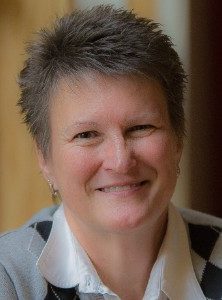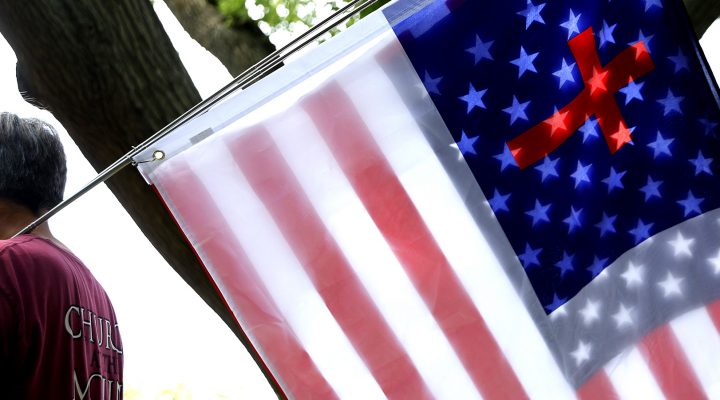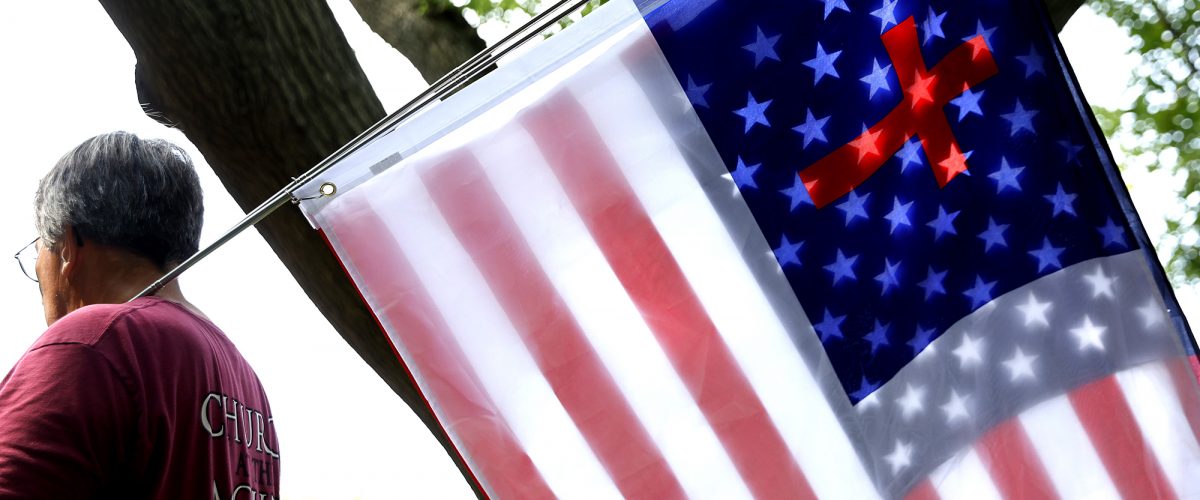I’m struggling to believe. Not in God. Not in Jesus. But in the church.
I’m wondering if we’ve gotten it all wrong, the songs and sermons, altar calls and Bible studies, missionaries and seminaries.
You see, I’m finding little evidence that Christian faith as we practice it transforms people at all.

Susan Shaw
Just look at how Christians are acting. Look at how we’ve acted historically — inquisitions, witch burnings, colonization, genocide, enslavement, Jim Crow. All these historical events were supported, if not initiated and carried out, by the church, by people who professed to be good Christians.
Then came the Trump years and the unimaginable turn of evangelicals to a man without morals or scruples, to policies that caged immigrant children, demonized Black and brown people, put zealots on the Supreme Court, and deeply divided an already conflicted nation. I watched all this in horror, and then I recognized it. I’d seen it before.
It was a logical extension of the takeover of the Southern Baptist Convention, the unbridled pursuit of political, social, economic and religious power couched in the language of the church, a bastardization of what I’d been told was the gospel.
Now we have white Christian nationalism unleashed and embraced by the very people whose ancestors fought for religious liberty and separation of church and state. My hometown returned Marjorie Taylor Greene to the House of Representatives, even after, and perhaps because, she revealed who she really is and the unhinged, hateful agenda she props up with a perversion of faith I cannot recognize.
“If this is how Christians behave, what does it even mean to be Christian?”
If this is how Christians behave, what does it even mean to be Christian? What does it mean to profess Christian faith if we are not transformed by it?
The reason I’m struggling, though, is not just the Religious Right. It’s the progressive church too. Why have we been so ineffective? For all our talk about love and justice, we have not changed hearts and minds nor oppressive structures. Obviously, something’s not working.
Why don’t we appeal to most people? Is it possible what we perform as church is outdated, outmoded and useless for most people? We’re not meeting needs. For all our trappings of faithfulness, what we’re doing isn’t reaching people. We’re not really relevant.
Think about it. The religious “nones” are increasing. Why is that?
What if we were really honest about church as a social institution. Findley Edge, one of my professors at Southern Seminary way back when, said good ideas become institutions in order to sustain the idea, but then eventually sustaining the structures becomes more important than the initial idea. Perhaps that’s where we are with the church. Perhaps the institution has moved so far away from the initial idea that it now exists only to sustain itself.
“Most of our beliefs have made us worse people and churches and citizens.”
I think about all our theological disputes, and I love a good argument as much as the next person, but at the end of the day does believing in predestination or believer’s baptism by immersion or transubstantiation or angels on the head of a pin radically transform people or systems into anything that remotely reflects Jesus? I don’t think what we believe about any of it matters because beliefs have not transformed us or the world. In fact, most of our beliefs have made us worse people and churches and citizens because they’ve divided us, made us hateful, and justified the harm we’ve done to others in the name of our beliefs.
Sure, I look around and see the small places where committed Christian people are doing things to make a difference within their spheres of influence. I see Christians gathered in churches to find community, welcome and support. But I do not see transformation on the level I would expect after 2,000 years of church history. Two thousand years, and this is where we are.
Maybe it’s time to set aside any notions we have of what church is and start over with the initial idea. What was that idea? Jesus was pretty clear. It was love.
What if we decided we would habituate ourselves to making sure our every act was one of love? Isn’t that what Jesus asked of us? What if we lived love in every moment and in every relationship with every person we meet?
What if we then asked what we need to do to live that kind of love as a community of Christians in such a way as to transform the world around us? What if we asked what the people around us need and how we could meet those needs as God’s community?
“What if we let go of the practice of worship services as the primary focus of the gathered community and asked people what they need.”
What if we let go of the practice of worship services as the primary focus of the gathered community and asked people what they need — especially the people in the communities around us? What if we stopped trying to convert people and simply lived in love toward them, met their needs, offered our unconditional friendship and support, took on their issues, helped make the world better for them? Wouldn’t they see Jesus in us then?
What if we asked how we could work together for justice? Perhaps that could become the unifying center of the church. After all, for Jesus the communal practice of love was social justice. For him, the two were never separate. He asked people to live love in their personal relationships and to do justice as the practice of love on a larger scale.
Imagine if Christians were to commit to having every action guided by the most loving thing we can do in a given situation. Imagine if we sided with the oppressed, spoke truth, did justice, showed grace and mercy, lived in joy. Imagine if we worked together with all people of good will to transform the social structures that perpetuate inequality, violence and harm. Imagine it.
But we don’t. Not on a grand scale. Not even on a small scale for most people, frankly. We’re simply not so radically transformed by the gospel that we are revolutionary in our love and justice. We’re nice. We’re charitable. We volunteer. We may even go to protests or write letters to our political leaders. But where is Jesus’ radical love? Where is his commitment to justice that was so deep he refused to bow to the power of the Roman Empire?
If the church had been these things all along, had been like Jesus, we wouldn’t be where we are now. So maybe we’ve got it all wrong. I mean, what are we doing Sunday after Sunday if it leads to what’s going on in Florida and Tennessee, to Ron DeSantis and Lauren Boebert, to sex abuse scandals in the Catholic Church and the Southern Baptist Convention, to the ineffectualness of mainline churches?
This can’t be it. Surely, this can’t be it.
We must have, not a reformation, but a transformation, not a revival but a resurrection of the radical politics of love at the core of Jesus’ life and teaching. The church as we know it may need to die to be reborn as the revolutionary embodiment of God’s love in the world. Only that power, the power of love, can transform us and redeem the world.
Susan M. Shaw is professor of women, gender and sexuality studies at Oregon State University in Corvallis, Ore. She also is an ordained Baptist minister and holds master’s and doctoral degrees from Southern Baptist Theological Seminary. Her most recent book is Intersectional Theology: An Introductory Guide, co-authored with Grace Ji-Sun Kim.
Related articles:
I asked people why they’re leaving Christianity, and here’s what I heard | Analysis by Brandon Flanery
Why I’m leaving my church: A theology of death | Opinion by Keith Hovey
‘Deconstruction’ is not a dirty word | Opinion by Andrea Huffman


